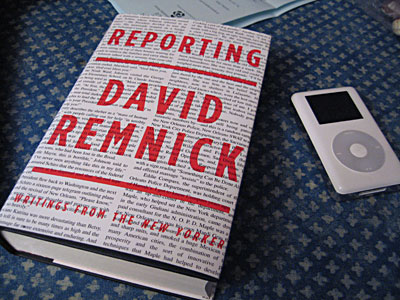Lovely piece by Steven Levy about the randomness of the iPod shuffle algorithm.
My first iPod loved Steely Dan. So do I. But not as much as my iPod did. By 2003, among the 3,000 or so songs in my iTunes library, I had about 50 Steely Dan tracks. Yet every time I shuffled my music collection “randomly” to mix the tunes, it seemed that the Dan was weirdly over-represented. Only two or three songs after Rikki Don’t Lose That Number, I’d hear Kid Charlemagne. Then, 20 minutes later, there would be Pretzel Logic. Where was the logic in this? I didn’t keep track of every song that played every time I shuffled my tunes, but after a while I would keep a sharp ear out for what I came to call the LTBSD (Length of Time Before Steely Dan) Factor. The LTBSD Factor was always perplexingly short…
This is one of those maddening articles in which someone writes about a topic that one had thought of covering, but didn’t. I use the shuffle facility on my iPod a lot, and often wondered if it was giving truly random results. But I didn’t take the logical next step and do some digging. Levy did, which is what makes him such a good journalist.
It turns out that this is an excerpt from his forthcoming book about the iPod phenomenon (Ebury Press, November 2, according to the Guardian). If it’s anything like as good as his book on the history of the Apple Mac, it’ll be worth queueing for.




